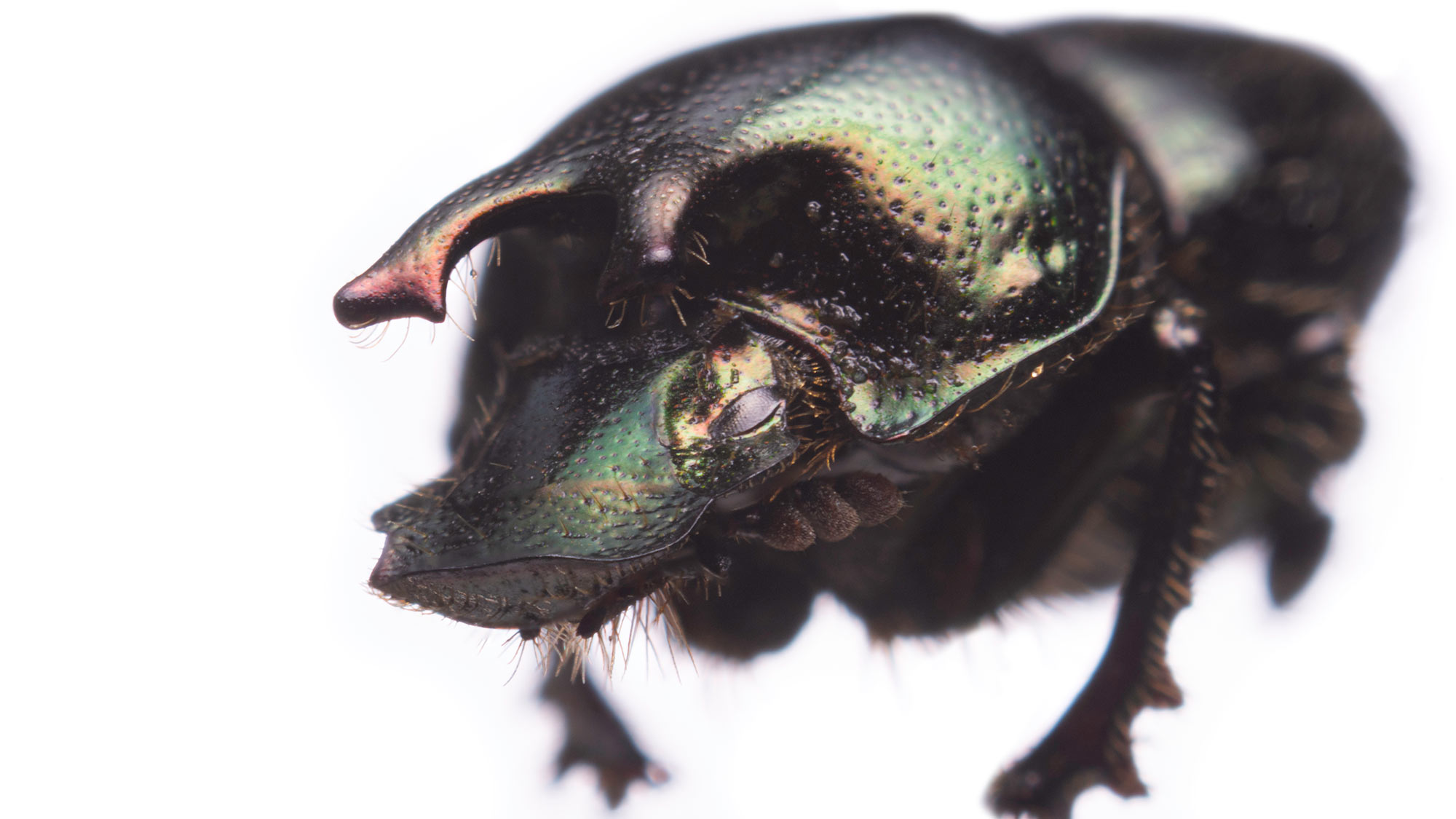For evolutionary biologist Erin McCullough, the mating rituals of dung beetles are not only fascinating, they also can provide a window into understanding how climate change might affect biodiversity. Native to the Mediterranean but accidentally introduced to Florida in the 1970s, the range of Onthophagus taurus—a “tunneling” dung beetle—has expanded steadily northward across the United States to Massachusetts.

Studying dung beetles’ mating rituals and expansion
“Because of climate change, we have species expansion,” McCullough says. “But there’s still a lot to learn about why some species are expanding, and why some species are not.
“Understanding how sexual selection plays a role in all of this is not well documented.”
Farmers across the world value dung beetles like Onthophagus taurus because they degrade manure and aerate and transfer nutrients into the soil. In the United States, dung beetle activity is worth an estimated $6 billion a year to the economy.
In Massachusetts, McCullough is studying whether Onthophagus taurus’ expansion has affected native dung beetles. And she is examining whether taurus has changed its sexual selection traits and tactics as it has expanded.
“Why in some populations is the introduced species the most abundant? And why in other populations is it not?” McCullough wonders. “I think that patterns of sexual selection may help explain some of these differences.”

